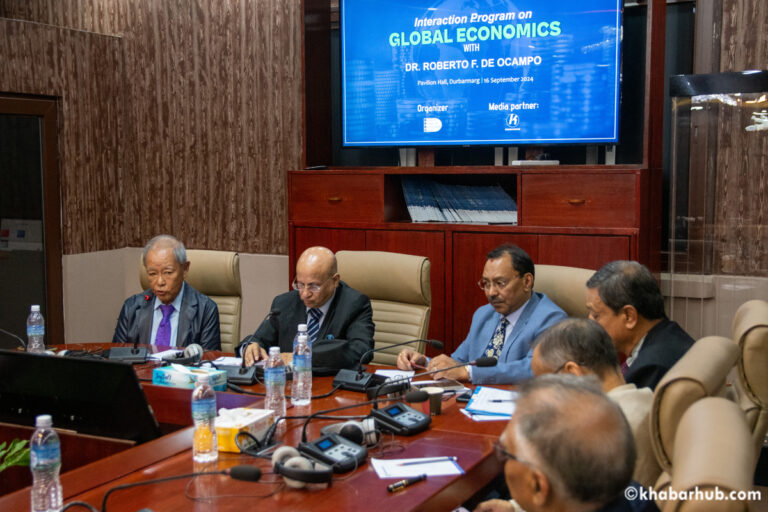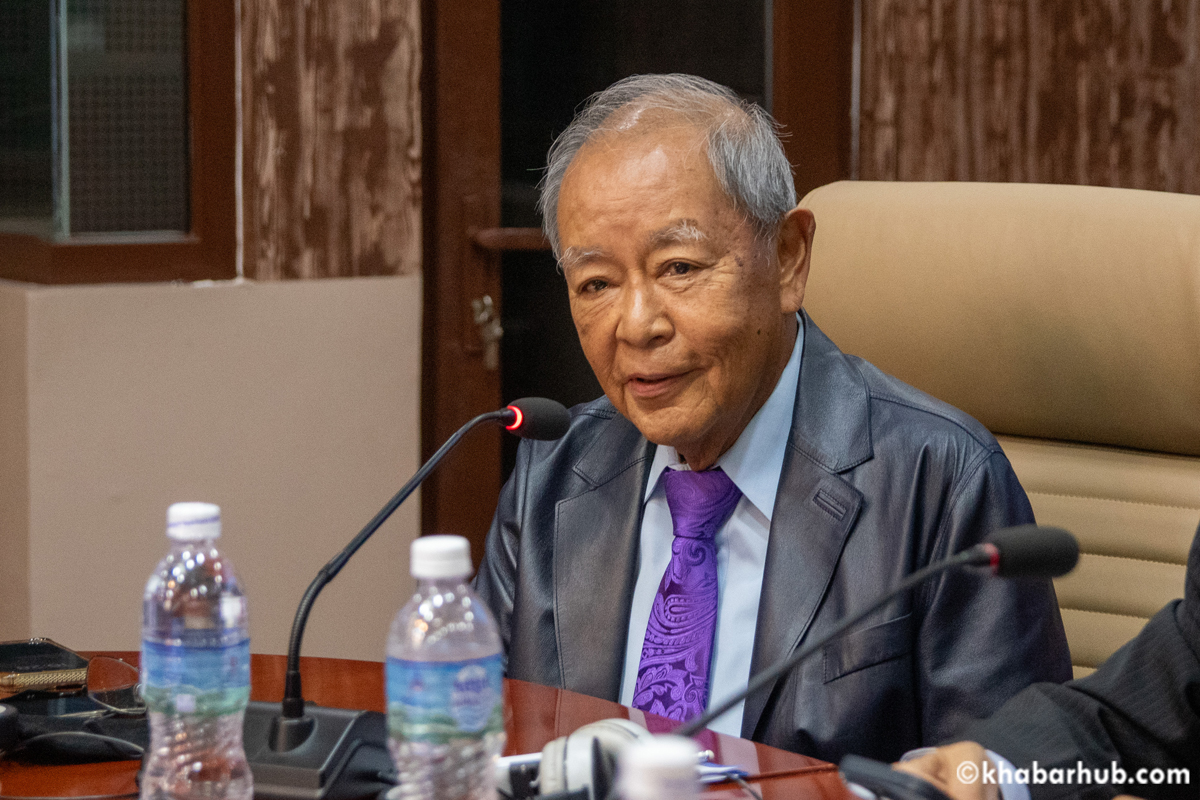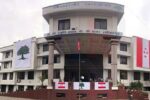KATHMANDU: Former Finance Minister of the Philippines, Dr. Roberto F. de Ocampo, reflected on the economic challenges faced in Asia in 1997, sharing valuable insights from that period and the subsequent economic policies adopted by various countries.
This exchange took place at an interaction held at Pavilion Hall, organized by the Institute for Strategic and Socio-Economic Research (ISSR) in Kathmandu.
The session focused on a comprehensive exchange of experiences and discussions on current economic issues.
Dr. Ocampo elaborated on his experiences with tax system reforms, the role of the private sector, and public-private partnerships (PPP) in infrastructure development—key strategies that helped address the economic crisis during his tenure.
He also highlighted the Philippines’ successful partnerships with international organizations to mitigate economic challenges.
Dr. Ocampo emphasized how the Philippines, unlike many other countries, allowed its currency to depreciate rather than defend it, maintaining a budget surplus that helped it weather the storm.
By not depleting its foreign exchange reserves in a futile attempt to support the peso, the Philippines was able to maintain economic stability, according to him.
He added that the adoption of the Manila Framework, which outlined steps for Southeast Asian countries to recover from the AFC, was another key success under his leadership.
He emphasized the importance of recognizing each country’s unique problems and potential, and stressed the need for clarity regarding a country’s primary sector and national interests for economic advancement.
In the context of Nepal, Dr. Ocampo suggested focusing on sectors such as tourism and minerals.
He also addressed the growing issue of youth migration, which is similarly affecting the Philippines.
One of the significant lessons from the AFC, Dr. Ocampo explained, was the danger of over-reliance on Western financial resources for generating needed funds.
At the time, many Asian countries had borrowed extensively from Western commercial banks, which led to vulnerabilities when the financial crisis hit.
This dependence exposed the region to shocks, and there was no equivalent in Asia to the Western financial systems to provide a buffer.
Another key topic Dr. Ocampo touched on was the need for robust public-private partnerships (PPP) to drive infrastructure development.
During his tenure as Secretary of Finance, he spearheaded several initiatives that encouraged private sector participation in infrastructure projects.
This, he noted, was essential for countries like the Philippines and Nepal, where government resources alone may not be sufficient to finance large-scale development projects.
One of the critical challenges he faced as Finance Minister, according to him, was reforming the country’s tax system, particularly in the areas of “sin taxes” on products such as alcohol and cigarettes.
By simplifying the tax structure and reducing the number of tax brackets, the Philippines was able to increase revenue collection without overly burdening its citizens.
Dr. Ocampo pointed out that similar tax reforms could be beneficial for Nepal as it looks to increase government revenue for development projects.
Dr. Ocampo also spoke about the global financial crisis of 2008, drawing parallels between it and the AFC.
One of the central lessons from both crises, he said, was the importance of managing fiscal and monetary policy in a way that balances short-term needs with long-term goals.
He noted that many of the countries that recovered quickly from the AFC did so because they relied on conservative fiscal policies and did not over-extend themselves in borrowing.
A significant challenge during the 2008 global financial crisis, according to Dr. Ocampo, was the lack of a coordinated global response.
While Western countries, particularly the United States, took aggressive action to stabilize their economies, the impact on developing countries was often neglected.
Dr. Ocampo emphasized the need for developing countries like Nepal to build resilience by creating strong domestic financial systems that are less reliant on external shocks.
The program featured active participation from former Finance Minister Gyanendra Bahadur Karki, former Chief Secretaries Bimal Koirala and Shankar Das Bairagi, former Governor Dr. Tilak Rawal, ISSR President Dr. Bishwambhar Pyakurel, Nepal Chamber of Commerce President Kamalesh Agarwal, and others. Participants engaged actively, sharing queries and perspectives.
Attendees expressed that they greatly benefited from Dr. Ocampo’s insights.

Dr. Roberto F. de Ocampo (L) at the interaction organized by ISSR in Kathmandu, Nepal.









Comment